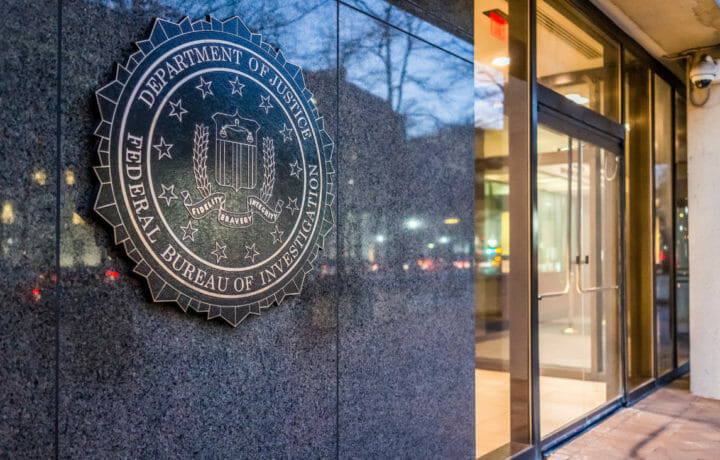A criminal complaint was filed against John Conrad Worrell, detailing his actions of February 6, which occurred both at the FBI Headquarters building in downtown Washington D.C. and then at an FBI facility in Vienna, VA. You may write off the criminal complaint as a gent having a manic episode and close the book. It is true, Worrell told the FBI during a consensual interview that “he had been receiving coded messages, which appeared in various forms including, e-mails, “stage whispering,” and a variety of different context clues over the course of several weeks, indicating that Worrell was in danger, and thus he was attempting to go to a secure facility where he could be safe.” This would seem to indicate that there’s something not quite right with his logic. Yet there is more at hand, as Worrell was an approved contractor, with FBI contractor access credentials, and attempted to use his knowledge of FBI’s process and procedures to gain access to a second FBI facility.
The insider angle
We must look deeper into the criminal complaint and see that what we have in Worrell is an insider risk. And this risk evolved into an insider threat, when he began his caper at the FBI Headquarters’ parking lot. Worrell, who was working at the FBI building for a contractor, found his way to the parking garage and drove away with an official vehicle of the FBI. The vehicle was a dark-green, four-door sedan assigned to an FBI Special Agent who worked within the Northern Virginia Resident Agency of the FBI Washington Field Office (public records show that there is such an entity located in Manassas, Prince William County in Virginia). The car had been left with keys on the dash within the FBI parking garage. According to the complaint, this is a normal practice given the dearth of parking spaces.
Worrell hit the jackpot when he drove off with this specific vehicle, as the Special Agent had left his FBI credential, a loaded clip for a hand gun, and his FBI Special Agent coat in the vehicle. Worrell, with FBI credential in hand, drove out of D.C. and headed to Vienna, VA. He arrived at the secure FBI Facility and attempted to enter the grounds by flashing the Special Agent’s credential and identifying himself as the FBI Special Agent. He was directed to wait in the visitor parking lot by the guard on duty. He did so, then became impatient, and returned to the guard and pleaded his case. Again, he was sent back to the visitor parking lot.
Over the course of the next 45 minutes, security personnel repeatedly approached Worrell, attempting to identify him. He eventually produced a Virginia drivers license and the last-four digits of his social security number, which of course did not match the FBI credential he had in his hand. The FBI summoned Vienna Police Department who detained him and then transferred custody to the FBI Police. An open source search indicates that the FBI maintains a “screening facility” in Vienna, VA.
The takeaways
During the consensual interview, it was learned that Worrell, who possessed an FBI contractor access badge had reported for work that morning at the FBI Headquarters building. He knew of the FBI secure facility in Vienna, VA, as he had worked there in the past, and was familiar with the function of the facility.
1. Suitability
During the interview Worrell indicates that he believed himself to be in danger. Had he mentioned this to his employer? How long had this been manifesting itself? Was this erratic behavior noted by colleagues and/or FBI personnel in the past?
2. FBI Headquarters
The parking situation at FBI Headquarters is a problem that isn’t going to go away, but the process how vehicles are left in the garage warrants adjustment and closer monitoring to avoid more vehicle thefts.
3. Special Agent
While Worrell clearly was the insider gone wrong, the victim Special Agent who returned to where he thought he left his vehicle to discover it had been stolen, was the insider who was careless. His error wasn’t in the parking of his official ride, rather it was in leaving his credentials and a loaded clip in an unlocked and unsupervised vehicle. A lesson for all: what one leaves in a vehicle is no longer secured.
You could argue that Worrell’s action was spontaneous – that the voices he heard and coded messages propelled him to steal the vehicle. It appears from the criminal complaint he was intent on driving to the Vienna FBI facility. We must wait to determine whether or not the discovery of the Special Agent’s credential propelled him to attempt to impersonate an FBI Special Agent.


